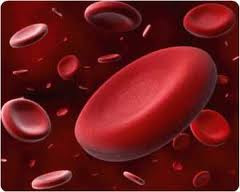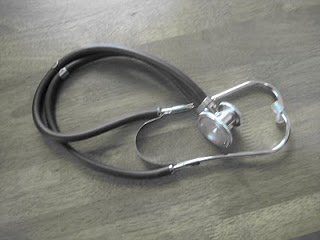This is a health related blog entry that is not just about Sjögren’s. I say this because I know that sometimes non-Sjögren’s people read the blog title or the first few sentences and decide they are not interested in the subject. I know this because well, people have told me. And for the record, I think that is awesome because I love honesty and because I frequently do the same thing when reading blogs. But this one is important because at some point in our lives most everyone, even my extremely healthy husband, has to see a doctor in this country.
We all know what the state of health care is like in this country and to be honest, I have no desire to get all editorial about that. But because I am constantly immersed in the health care system, people ask my opinion a lot and I read stories and scenarios online about other patients who find themselves in situations that they think are unique to them. So I am going to share with you all a recent scenario that happened to me and how I dealt with it. It doesn’t mean that what I did was right for everyone but I want to share it because I think it is important. I wish it wasn’t because frankly, I would rather not talk about my bladder but for the sake of the greater good, I will.
About a year ago, I experienced some new symptoms that strongly mimicked the symptoms of a urinary tract infection (UTI). Pelvic pain and a feeling like I had to go to the bathroom all the time. I was treated with antibiotics and my symptoms seemed to go away. Since that time I noticed these same symptoms on a few other occasions; sometimes I would be given antibiotics although looking back, I realize that I never had a positive urine for an infection. I was being treated primarily because of my symptoms and because I kept telling my different doctors that I thought I had a UTI. Sometimes the symptoms went away on their own. In the back of my head, I knew something else might be going on because things just didn’t seem “right”. When I went to urinate, the urine wouldn’t come out as easily as it typically did and I frequently felt like I had to go even though I had just been in the bathroom ten minutes earlier. I kept mentioning this to different medical professionals but I never made a big deal about it because it always went away and when you have an autoimmune illness as complicated as mine is, you cannot possibly pay attention to every single physical symptom. You would go crazy, trust me. Plus I was dealing with other physical issues, planning a wedding, trying to get a book published, had a death in my family, and all kinds of other more important issues.
Then the second week of June 2013 came and the pelvic pain came back with a vengeance. I don’t think it was a coincidence that it was right after my wedding (good stress). It would still come and go but I was really struggling on the toilet. Sometimes a trip to the bathroom made me sob it hurt so much. I had my urine tested and it was negative. I began to wonder if I had a Sjögren’s related complication called interstitial cystitis. So I called my nephrologist, who is a kidney doctor, and he referred me to a urologist, a bladder doctor. It was a doctor I had heard of and he was based out of a local community hospital that I hadn’t been to in years. I read some reviews online of him that seemed favorable. For the sake of avoiding a lawsuit, we will call him Dr. B (for bladder).
I was a little nervous about seeing a new doctor, especially because my symptoms waxed and waned and I had my credibility doubted in the past before I was accurately diagnosed with Sjögren’s syndrome. The whole thing got off on the wrong foot because I showed up for the appointment only to find out it had been the previous day. I had been given the wrong date. I then had to wait another several weeks to get another appointment and my symptoms were worsening by the week.
I finally got to my new appointment day with Dr. B. I registered in the lobby of the hospital where I found out they had a lot of my information wrong. I then proceeded to the clinic/office and I was actually confused where to go. There were no signs indicating I was in the right place and when I asked a staff person, I was spoken to in a sharp tone. You could tell that she was stressed. I was told to take a seat.
After waiting well past my appointment time, I had my visit with Dr. B. I am going to start by saying that when I meet a new doctor, I go into that visit with a smile on my face and a positive attitude. I feel that it is important in building a rapport with someone. My positive attitude quickly took a turn as I found myself in a head to head argument with Dr. B. several minutes into the visit. He was asking me my medical history and I told him I had my adenoids removed when I was a toddler. He then reiterated to me that I had my tonsils and adenoids removed. I corrected him and said no, just the adenoids were removed and the argument followed. As a pediatric nurse, I know that typically tonsils and adenoids are removed at the same time these days but for whatever reason, only my adenoids were removed back in 1974. He told me that wasn’t possible. I asked him if he wanted to look in my throat. He declined. Remember, this is a urologist, not an ear, nose, and throat doctor.
The visit went downhill from there. He wanted to do another ultrasound as the one from a few months ago was suspicious for urinary retention. He didn’t seem to hear me when I told him that the nephrologist thought that the urinary retention was from a medicine I was on at the time and no longer took. He mentioned the possibilities of Parkinson’s or some other type of neurological disorder. I wasn’t against this testing but I brought up the possibility of interstitial cystitis related to Sjögren’s. I was again dismissed in a condescending tone and told that interstitial cystitis itself is rare, I don’t fit the profile, and Sjögren’s doesn’t cause bladder complications. I have come to find out that cystitis can affect anywhere from 10-30% of people with Sjögren’s. He never did a physical exam of any kind.The visit ended with him asking me why I was on Medicare. I’m not sure why that mattered but I told him I was disabled from Sjögren’s. His response indicted to me that he did not think that having Sjögren’s was a good reason to be disabled.
I sat in the waiting room in disbelief. First, I could not believe that a doctor actually got away with talking to people like that. And second, I was shocked at myself for not just getting up and leaving during the visit. Then I tried to think about my own behavior and interaction to see if part of this was my responsibility. It took me all of five minutes to realize that my behavior was extremely appropriate but it was also assertive and I knew what I was talking about. I think that may have upset this doctor. As I got my test dates and then drove home, I thought about what to do. I was very upset. I knew I was starting to get worse but I could not see myself going back to this doctor for any reason. If I started all over with a new doctor, there could be no telling how sick I might get while trying to find a new doctor and then waiting for an appointment.
I felt vulnerable. This doctor’s appointment left me feeling helpless and inferior when I left the office. I am a well educated, professional nurse who has more knowledge of Sjögren’s syndrome than probably most physicians in this country and yet I now questioned myself because someone had the initials M.D. after their name. I also knew that I desperately needed his help. It wasn’t only that he didn’t recognize or have the knowledge about my autoimmune illness, it was about the fact that he just did not care. He let his pride stand in the way of hearing me when I tried to tell him the information I read from the Sjögren’s Syndrome Foundation about bladder issues. I didn’t know for sure if that was the issue, but I did expect to have a reasonable conversation about it. I expected to be treated as a partner in my own health care. I expected to be treated with respect.
So what did I do? Within several hours of getting home, I decided that there was no way I could work with this doctor. I cancelled my tests and I started the process of finding another urologist which took me a very short period of time. Within three days, I had an appointment set up with a urologist at Lahey Clinic in the Boston area. Two hours from home. I made the decision to go there for several reasons; the biggest one being that they are nationally recognized for their urology program. Two more weeks I would have to wait.
Things did go from bad to worse for me in regards to my bladder issues. In those two weeks, I ended up in the emergency room with some of the worse pain I have had in my life; and that is saying a lot! But it was worth it. And I will explain why.
From the moment, and I literally mean moment, I stepped into Lahey Clinic, I was treated with the utmost respect. People would stop me in the hall (guess I was looking a little confused) and asked if they could help me get to my location. When I walked into the Urology Institute, I felt like I had stepped onto another planet. They were organized and on time. Before I saw the doctor the first time, I met with a nurse who did a urine test and a scan of my bladder afterwards to make sure I was not retaining any urine. She explained to me the entire process of what my visit would be like. She handed me two forms to fill out and guess what the first form was? An interstitial cystitis questionnaire. It was obvious to me that someone had bothered to look at the medical records I had sent over. It was obvious to me that my doctor had a clue about autoimmune issues.
The doctor I met with truly listened to me and we came up with a plan together. He told me he suspected that I had interstitial cystitis (IC) . Within a few days of my visit, I went downhill even further and talked to an on-call doctor on a Saturday who helped me figure out a medication plan to get me through the weekend. When I called the office back on Tuesday, a receptionist listened to me explain my situation and got me an appointment for the next day with one of the nurse practitioners. Again I was listened to, we explored all the options, and it was decided that my procedure/OR date should be moved up. My appointment was a Wednesday and I was scheduled for the OR on Monday for a cystoscopy with hydrodistension to evaluate and treat for possible IC. While I was at the hospital for this appointment, they had me do my preoperative registration and blood work that same day since I lived so far away. Most importantly, I was treated with respect. That is excellent medical care.
So what is my point in telling you this huge and drawn out story? Well, we all must decide for ourselves what we are willing to put up with and what we are not. We must also weigh the risks and benefits of every medical situation. That being said, it is NEVER acceptable to be treated by a medical professional in a way that is demeaning, rude, or uncomfortable. It doesn’t matter what your medical issue is and it doesn’t matter how much pain you are in. It doesn’t matter if the doctor does not like you and it doesn’t matter if he is having a bad day. Doctors have bad days just like the rest of us however they are also professionals. And you are the patient. Just being a patient makes you vulnerable when you step across their threshold. I am not saying to dismiss someone because they disagree with you (I have certainly had my share of disagreements with doctors) but you should never feel disrespected and you should certainly never leave an office in tears because of a medical professional. You deserve better. We all do.
We often hear and see online and in the media about healthy relationships versus dysfunctional ones. We hear about abusive spouses and toxic friends. We learn about what is acceptable behavior and what is not. We teach our children about bullying. But what about the very people who sometimes literally hold our lives and well being in their hands? Shouldn’t they be held to the same standards? Í am not saying that all doctors are rude, inappropriate, or bullies. I, in fact, have seven who are none of those things and are some of the best doctors out there. So if you encounter a situation like this, know that there are not alone, know that you deserve better, and don’t quit until you get what you need.
********************************************
I know that I am fortunate. My experiences took place in a state where the eastern side of the state, two hours away from me, is riddled with some of the top hospitals and doctors in the country. I have never lived anywhere else besides western Massachusetts but I do understand that access to better care may not be as easy for some of you as it was for me. I would be interested in hearing your thoughts and stories regarding that or in regards to anything discussed in this essay.



